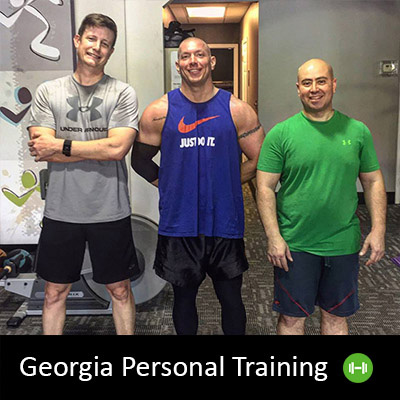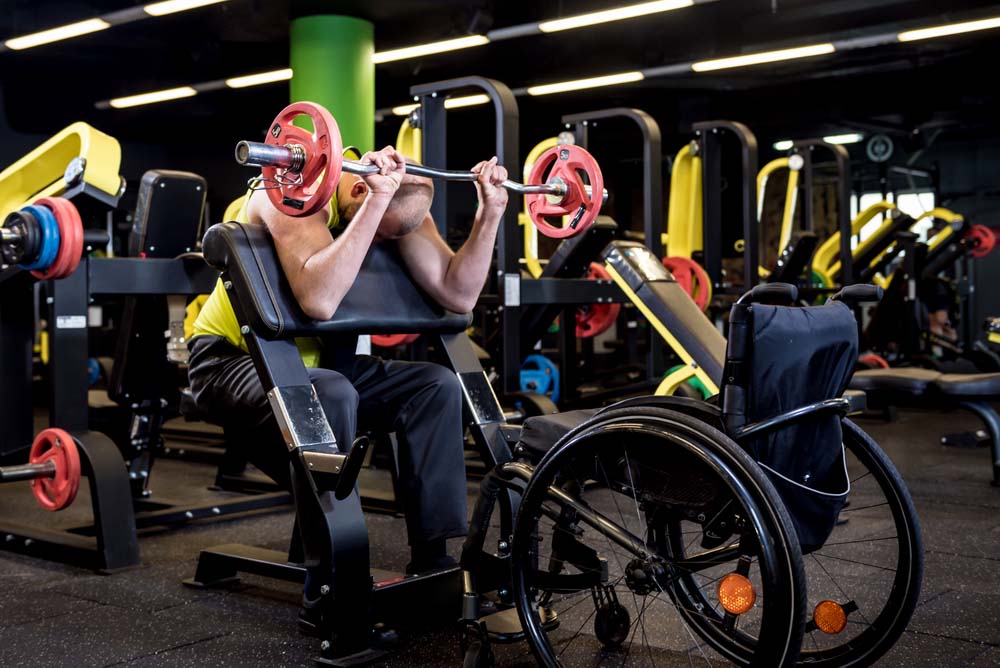Georgia Personal Training/Roswell Fitness Factory
Finding Strength and Flexibility for Reduced Mobility Through Adapted Exercises
In a world where movement is often taken for granted, reduced mobility can feel like a barrier to enjoying life to its fullest. But it does not have to be that way. Whether you are an elderly individual, physically handicapped, or a caregiver looking for ways to improve the quality of life for those you care for, Adapted Workouts offered at Georgia Personal Training can offer a pathway to improved health and well-being. Injured athletes, too, can benefit from exercises designed to regain strength and flexibility without overexerting themselves. This blog will guide you through practical exercises tailored to accommodate different levels of mobility, offering a wealth of benefits for body and mind.
The Importance of Exercise for Reduced Mobility
Exercise plays a crucial role in maintaining health, especially for individuals with reduced mobility. It improves cardiovascular health, enhances muscle strength, and boosts mental well-being. For the elderly and physically disabled, exercise can drastically enhance mobility, reduce the risk of chronic diseases, and improve mood. Injured athletes recovering from physical setbacks will find that targeted exercises can accelerate healing and prevent further injury. By incorporating fitness into daily routines, anyone with limited mobility can unlock a treasure trove of health benefits.
Georgia Personal Training Understands Adapted Workouts
Adapted workouts are specifically designed to cater to individuals with varying degrees of mobility. Unlike typical fitness regimes, these exercises focus on what the individual can do rather than what they cannot. Whether it’s chair yoga for those who can’t stand or water aerobics for gentle resistance, adapted workouts are versatile and inclusive. Recognizing the unique needs of each person ensures that everyone can participate and benefit from physical activity without feeling overwhelmed or excluded.
Benefits of Elderly Fitness Programs
Elderly fitness programs are tailored to address the specific challenges older adults face, such as balance issues and joint stiffness. These programs can significantly improve flexibility, strength, and mental acuity. Regular participation in elderly fitness activities has been shown to reduce the risk of falls, elevate mood, and foster social connections. For caregivers, these programs offer peace of mind knowing their loved ones are engaging in safe and effective physical activities.
Chair-Based Exercises for the Handicapped
Chair-based exercises open up a world of possibilities for the physically handicapped. These exercises are performed while seated and can include arm lifts, leg extensions, and seated twists. They help improve circulation, build muscle strength, and increase flexibility. The beauty of chair-based exercises lies in their adaptability; they can be modified to suit individual capabilities, ensuring everyone gets the most out of their workout.
Water Aerobics for Low-Impact Conditioning
Water aerobics provides a low-impact environment ideal for those with joint pain or reduced mobility. The buoyancy of water supports the body, reducing stress on joints while allowing for full range of motion. Participants can engage in exercises like water jogging, leg lifts, and arm curls, which help build strength and improve cardiovascular health. This form of exercise is not only effective but also enjoyable, making it a popular choice among seniors and those with physical disabilities.
Yoga and Stretching for Flexibility
Yoga and stretching exercises are excellent for enhancing flexibility and reducing stiffness. For individuals with reduced mobility, modified yoga poses and stretches can be performed with the aid of props like blocks and straps. These exercises promote relaxation, improve posture, and increase range of motion. Whether standing, seated, or lying down, yoga offers a gentle yet powerful way to improve physical and mental well-being.
Resistance Band Workouts for Strength
Resistance bands are versatile tools that can be used to perform a variety of strength-building exercises. They are particularly beneficial for those with limited mobility as they allow for controlled movements. Exercises such as seated rows, bicep curls, and leg presses help strengthen muscles without placing undue stress on the joints. Resistance bands come in various resistance levels, making them suitable for all fitness levels and capabilities.
Tai Chi for Balance and Coordination
Tai Chi, a traditional Chinese martial art, is renowned for its slow and deliberate movements that promote balance and coordination. It is especially beneficial for the elderly and those with reduced mobility as it focuses on gentle movements and deep breathing. Practicing Tai Chi can enhance stability, improve posture, and reduce the risk of falls. Its meditative nature also contributes to mental clarity and stress reduction.
Pilates for Core Strength
Pilates is another excellent option for building core strength and stability. Adapted Pilates exercises target the abdominal muscles, lower back, and pelvic floor, which are crucial for maintaining balance and preventing injury. For those with limited mobility, Pilates can be performed on a mat or with the assistance of equipment like the Pilates chair. This low-impact exercise improves posture, enhances flexibility, and promotes overall body awareness.
Engaging Caregivers in the Exercise Process
Caregivers play a vital role in encouraging physical activity among those with reduced mobility. By participating in adapted workouts alongside their loved ones, caregivers can provide support, motivation, and companionship. This shared experience not only strengthens bonds but also promotes a healthier lifestyle for both parties. Caregivers are encouraged to seek out resources and programs tailored to their needs and those they care for.
Creating a Personalized Exercise Plan
Creating a personalized exercise plan is essential for achieving the best results. Consulting with the Georgia Personal Training professionals can help determine the most suitable exercises based on individual needs and limitations. A well-rounded plan should incorporate a mix of strength, flexibility, and cardiovascular exercises. Setting realistic goals and gradually increasing intensity will ensure progress while minimizing the risk of injury.
Staying Motivated and Overcoming Challenges
Staying motivated can be challenging, especially when faced with physical limitations. However, setting achievable goals, tracking progress, and celebrating small victories can help maintain enthusiasm. It is important to listen to your body and adjust exercises as needed to prevent frustration and burnout. Joining Georgia Personal Training for group exercise class can also provide encouragement and foster a sense of camaraderie.
Conclusion
Incorporating adapted exercises into the lives of those with reduced mobility can lead to significant improvements in physical and mental well-being. Whether through chair-based exercises, water aerobics, or yoga, the options are diverse and tailored to fit individual capabilities. By engaging caregivers and creating personalized exercise plans, everyone can enjoy the benefits of a more active lifestyle. Remember, the journey to improved health and mobility begins with a single step—or stretch—and the rewards are well worth the effort. For those eager to explore further, numerous resources and programs are available to guide you on this empowering path to wellness.
Georgia Personal Training is Skilled at Adaptive Personal Training
ADRIAN WAS DIAGNOSED WITH PARKINSON’S AT AGE 40
Georgia Personal Training is located right next door to the Just People facility. We work closely with the staff at Just People Village, anytime we are working with one of their residents. The staff at Just People is really great. They coordinate with us in bringing the training clients over to the gym for their workouts. When the workouts are finished, the Just People staff coordinates getting the client back to their living quarters. Everything in the process is designed to make the training sessions a great experience for the customer.
The vast majority of the folks we have worked with really do enjoy the workouts. They look forward to coming over to the gym and you can see their excitement grow when the workout starts. Our experience with these special needs folks has really been a great one. Working with them is a truly a humbling and moving experience. The exercises are difficult for them, but, yet they try so hard to do them. You know it’s working for them when you see them smile, laugh and give out hugs to the training staff and other gym members.

The Roswell Fitness Factory/Georgia Personal Training
9420 Willeo Road (Suite 105)
Phone: (770) 241-1086
Email: matthewlein@bellsouth.net


